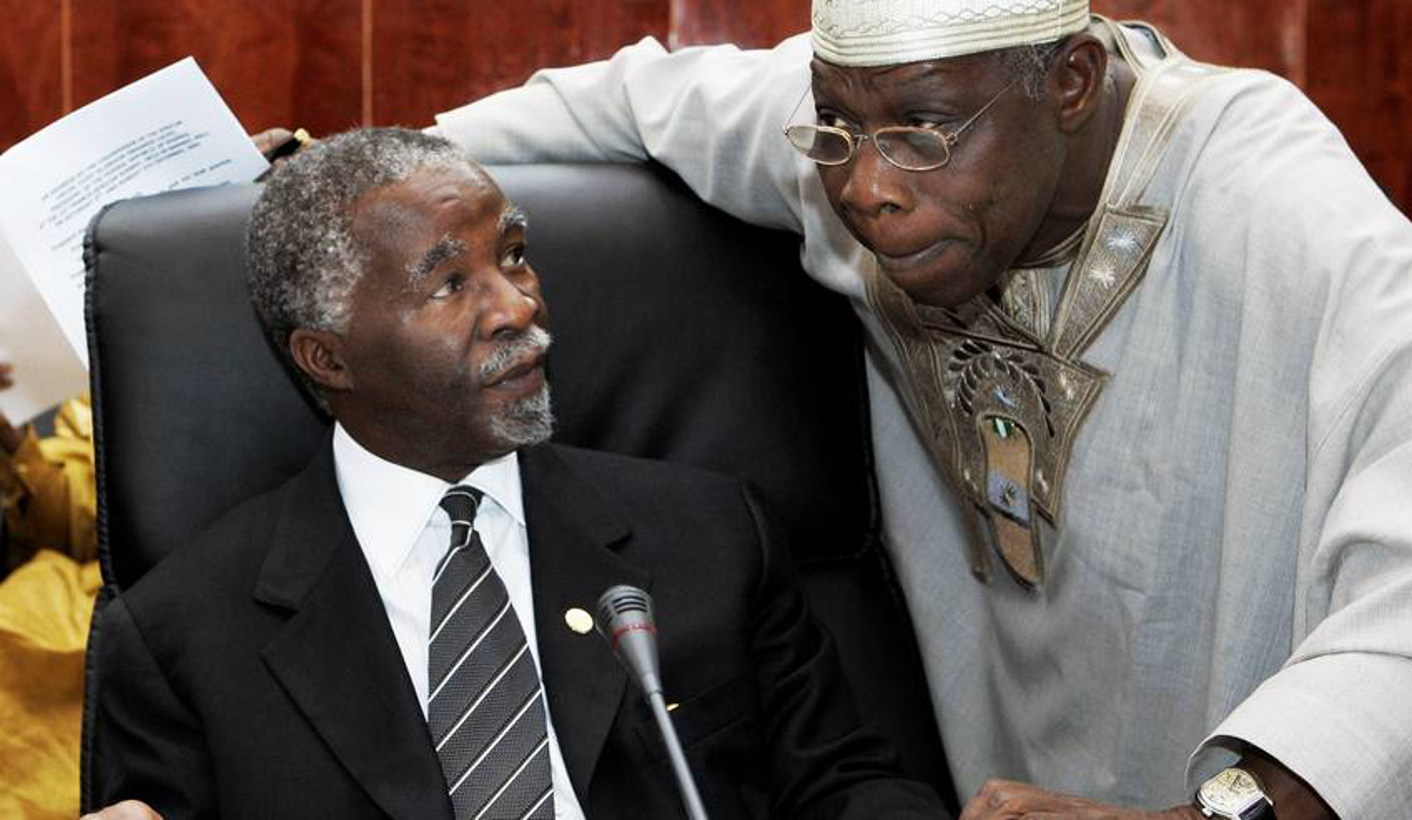Thabo Mbeki: How I worked against Obasanjo’s third term
Further revelations on the failed third term bid of former President Olusegun Obasanjo have been revealed. Former President of South Africa, Thabo Mbeki, has disclosed how he and Abdulsalami Abubakar, former Head of State of Nigeria, worked against the ill-fated ambition. Obasanjo has repeatedly denied he was involved in the bill proposed to the Nigerian […]

Further revelations on the failed third term bid of former President Olusegun Obasanjo have been revealed.
Former President of South Africa, Thabo Mbeki, has disclosed how he and Abdulsalami Abubakar, former Head of State of Nigeria, worked against the ill-fated ambition.
Obasanjo has repeatedly denied he was involved in the bill proposed to the Nigerian parliament to amend the constitution and grant him an extra term.
Speaking virtually on Thursday at the Abdulsalami Alhaji Abubakar Festschrift Conference held in Abuja, Mbeki said he called the former Nigerian leader to discussed the issue with him.
He said, “As a privilege to reiterate the commitment of General Abubakar to democracy in Nigeria in 2006, more than five years after he had handed over powers to Olusegun Obasanjo, the constitution on whose basis president Obasanjo was elected described a two-term limit for the head of state, and since he [Obasanjo] had been elected for the second time, this meant that he would end his term in 2007.
“But some time before, in 2005, a campaign began in Nigeria to amend the constitution to allow for three presidential terms. This developed to a point that the draft of the proposed amendment had been presented to the Nigerian parliament as papers.
“When I heard about this development, I engaged Obasanjo to communicate my unease at the proposal. In the end, I discussed it with general Abubakar, and we agreed that the proposed amendment was undesirable. We shared the view that the amendment must be avoided at all costs. We were of one mind that it spells bad both for Nigeria and the rest of the continent, tampering with and compromising our democratic system, which is just a few years old.
“We agreed to add our voices to those kicking against the amendment. We agreed that Abdulsalam would follow the situation in Nigeria closely and indicate to me when we should intervene against the constitutional amendment. I was very pleased when he called that the Nigerian senate has voted against the amendment.”
